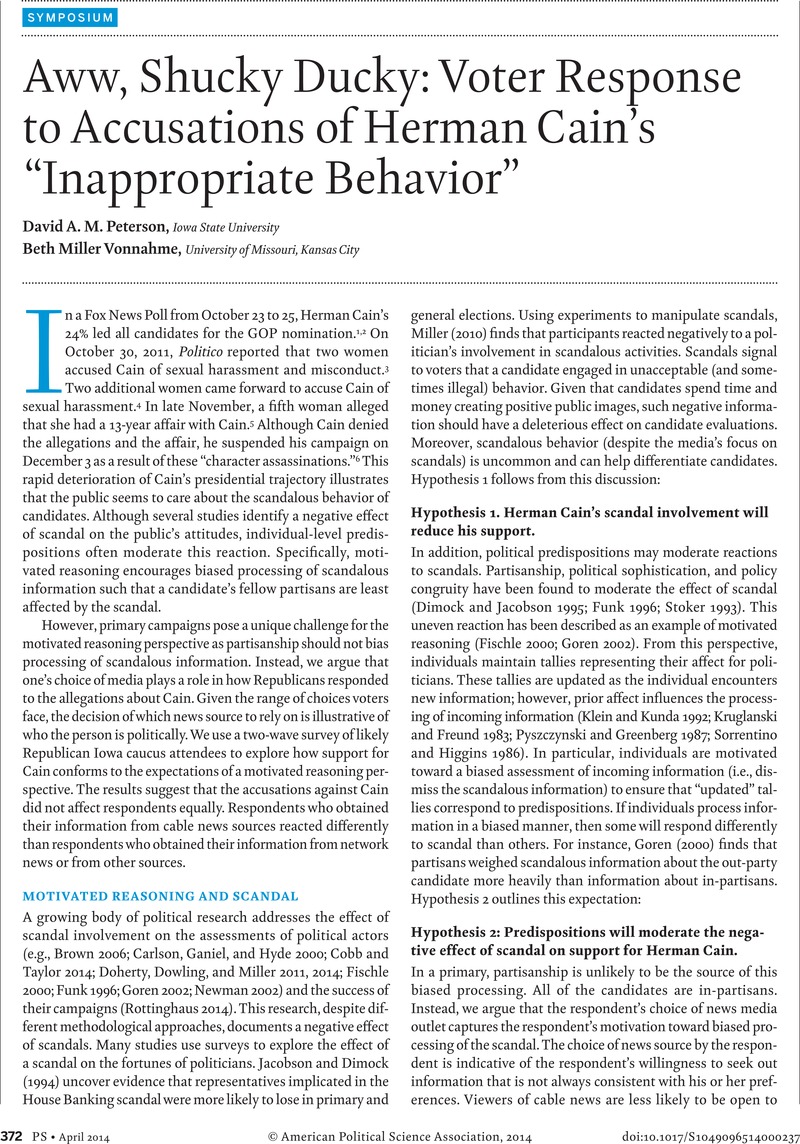Crossref Citations
This article has been cited by the following publications. This list is generated based on data provided by Crossref.
McDermott, Monika L.
Schwartz, Douglas
and
Vallejo, Sebastian
2015.
Talking the Talk but Not Walking the Walk.
American Politics Research,
Vol. 43,
Issue. 6,
p.
952.
Lelkes, Yphtach
and
Westwood, Sean J.
2017.
The Limits of Partisan Prejudice.
The Journal of Politics,
Vol. 79,
Issue. 2,
p.
485.
Barnes, Tiffany D.
Beaulieu, Emily
and
Saxton, Gregory W.
2020.
Sex and corruption: how sexism shapes voters’ responses to scandal.
Politics, Groups, and Identities,
Vol. 8,
Issue. 1,
p.
103.
Stark, Stephanie
and
Collignon, Sofía
2022.
Sexual Predators in Contest for Public Office: How the American Electorate Responds to News of Allegations of Candidates Committing Sexual Assault and Harassment.
Political Studies Review,
Vol. 20,
Issue. 3,
p.
329.
Crawford, Nyron N.
2022.
“It’s a Racist Plot”: An Experimental Test of the Racial Defense.
Urban Affairs Review,
Vol. 58,
Issue. 5,
p.
1277.
Nawara, Steven P.
and
Bailey, Mandi
2025.
Scandal-ridden campaigns: the relationship between cognitive load and candidate evaluation.
The Social Science Journal,
Vol. 62,
Issue. 1,
p.
57.
Leiter, Debra
and
Vonnahme, Beth
2025.
Are some parties immune from scandal? Party family, scandal exposure, and party evaluation.
Journal of Elections, Public Opinion and Parties,
p.
1.



